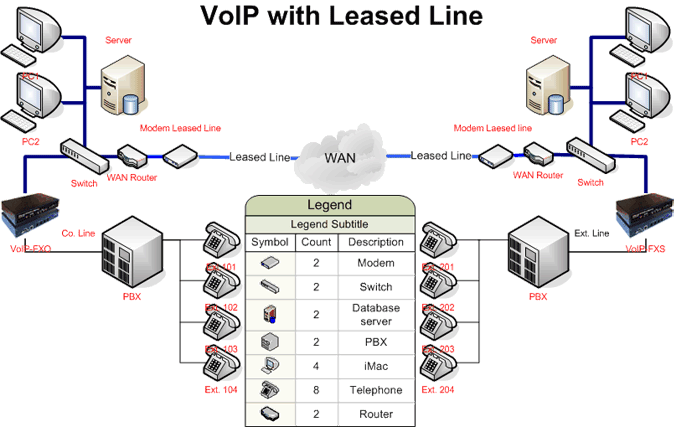|
|
 |
|
 |
PC CHINA Voice Over
IP | |
Voice over IP (VoIP) is a major step
in the evolution of real-time multimedia
collaboration, where businesses can realize
competitive advantages through increased
productivity, improved customer service and lower
communications costs. With VoIP, businesses of all
sizes can combine voice, presence detection,
instant messaging, video and other applications
for richer, more integrated communications on one
converged IP network.
VoIP, or voice over
Internet protocol, allows you to send voice
communications over the Internet and avoid the
toll charges that you would normally receive from
your long distance carrier. |
| |
 |
Cost
When you send
information across the Net, an e-mail for
instance, it costs the same if you send it to your
next door neighbor or your friend across the
country, but the cost of making a phone call next
door or across the country is different. If you
could send voice as if it were data, then it
wouldn't matter who you were talking to. VoIP
packages phone conversations in the same way that
data (an e-mail or a download for example) is
packaged and then sends it across the same
line. |
| |
Functionality
VoIP can facilitate tasks that
may be more difficult to achieve using traditional
phone networks:
- Incoming phone calls can be automatically
routed to your VoIP phone, regardless of where
you are connected to the network. Take your VoIP
phone with you on a trip, and wherever you
connect to the Internet, you can receive
incoming calls.
- Free phone numbers for use with VoIP are
available in the China , UK and other countries.
- Call center agents using VoIP phones can
work from anywhere with a sufficiently fast
Internet connection.
- Many VoIP packages include PSTN features
that most telcos normally charge extra for, or
may be unavailable from your local telco, such
as 3-way calling, call forwarding, automatic
redial
|
| |
|
Mobility
VoIP allows
users to travel anywhere in the world and still
make and receive phone calls:
- Subscribers of phone-line replacement
services can make and receive local phone calls
regardless of their location. For example, if a
user has a New York City phone number and is
traveling in Europe and someone calls the phone
number, it will ring in Europe . Conversely, if
a call is made from Europe to New York City , it
will be treated as a local call. Of course,
there must be a connection to the Internet e.g.
WiFi to make all of this possible.
- Users of Instant Messenger based VoIP
services can also travel anywhere in the world
and make and receive phone calls.
- VoIP phones can integrate with other
services available over the Internet, including
video conversation, message or data file
exchange in parallel with the conversation,
audio conferencing, managing address books and
passing information about whether others (e.g.
friends or colleagues) are available online to
interested parties.
|
| |
 |
|
Most VoIP companies provide the features that
normal phone companies charge extra for when they
are added to your service plan. VoIP includes:
- Caller ID
- Call waiting
- Call transfer
- Repeat dial
- Return call
- Three-way calling
There are also
advanced call-filtering options available. These
features use caller ID information to allow you
make a choice about how calls from a particular
number are handled. You can:
- One button access for voice recording to
your personal voicemail box or to a centralized
server
- programmable keys for extension, call and
line appearances, access to system features, and
speed dialing
- Forward the call to a particular number
- Send the call directly to voicemail
- Give the caller a Send the caller to a funny
rejection hotline
- busy signal
- Play a "not-in-service " message
With many VoIP services, you can also
check voicemail via the Web or attach messages to
an e-mail that is sent to your computer or
handheld. |
| |
 |
| | |
| | | |



